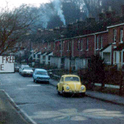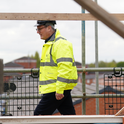For over a decade, the consensus on housing has been that Something Must Be Done. And in most of the rhetoric that something is to build more homes. It sounds simple, practical and—in the light of a rising population, sky-high prices, and our chilling infographic on homelessness—compelling too. Why, then, hasn’t it worked so far?
In part, it is down to the great crash. In 2007, Gordon Brown vowed to make the building of more homes—and garden cities—his administration’s signature policy. But then the financial crisis hit, and construction went into freefall. Now—finally—as Kit Malthouse says, housebuilding has bounced back to where it was before Lehman fell. On a longer view, the rebound looks less impressive. In the quarter century from the mid-1950s, the rate at which new dwellings were being completed exceeded the 2017-8 figure every year. By historical standards, even the “stretching” target for 300,000 homes annually doesn’t seem so bold: in the 1960s, the available estimates (which probably undercounted) hit 350,000 homes at one point.
The minister sees the stars of cheap credit, available land and political will aligning. But after a full 40 years of slow building, I’m not sure Britain will be able to build its housing market out of trouble any time soon—even if he hits his target. For Labour, Melanie Onn suggests complementing the drive to build more homes with various social objectives—curbs on private rents, a pivot towards more social homes, and even somehow capping mortgage costs with reference to local wages. It’s hard to see how that last idea could be made practical, at least without substantial resources which more council homes may also require.
So where to find the money? Ditching avoidable subsidies is one obvious place: Help to Buy purports to assist struggling buyers, but ends up puffing up prices; and, as Onn suggests, it is also time to pause the sale of social homes. As houses have become goldmines for owners, other options open—new council tax bands, and extending capital gains tax. Raise the relative cost of living alone, and you increase the rewards for families and friends to share. That’s swimming against a deep social tide towards smaller households. But it guards against betting everything on bricks and mortar.













